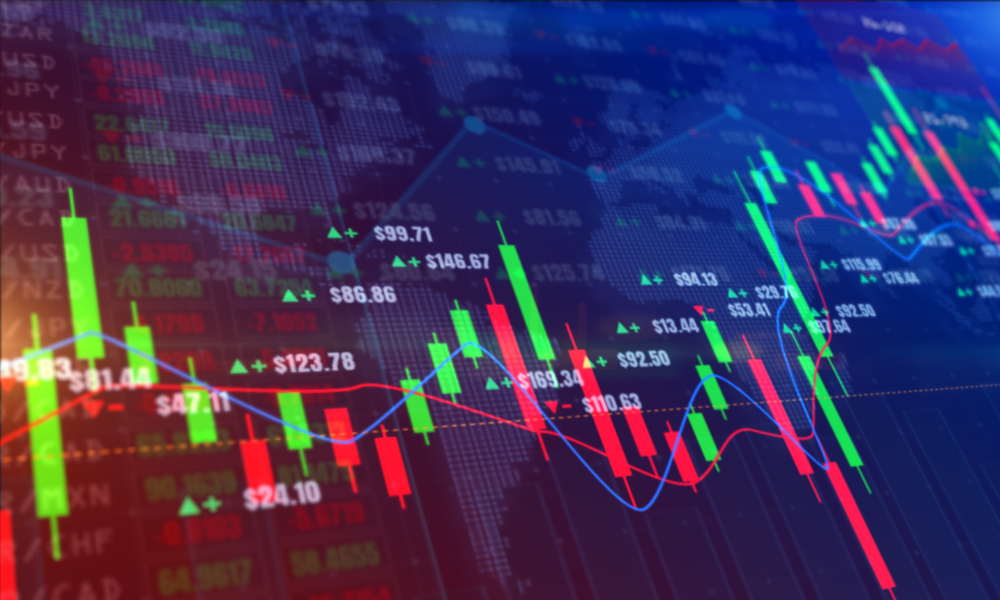

by Joanna Ossinger and Andre Janse van Vuuren
US equity futures fell and oil rose after President Donald Trump called for the evacuation of Tehran, in remarks that contrasted with earlier optimism that Israel-Iran tensions wouldn’t escalate into a wider conflict.
S&P 500 contracts declined 0.5% following Trump’s comments in a social media post from a Group of Seven leaders’ summit in Alberta. It wasn’t clear what he was referring to but hours earlier, Trump had said Iran wanted to make a deal. The US President cut short his G-7 visit and said his return to Washington “has nothing to do with” a ceasefire.
Brent crude traded 1.3% higher after swinging between gains and losses. Gold, the dollar and US Treasuries were little changed.
Shifts in market sentiment continued on Tuesday as traders gauged the risks of an escalation in hostilities and broader involvement. Investors’ focus is especially on oil prices, with a commodity that had hovered near pandemic-era lows now emerging as an unexpected source of inflation.
Prices could soar if Tehran attempts to disrupt shipments through the Strait of Hormuz, a gateway for about a fifth of the world’s daily output.
“The degree of uncertainty is very high,” said Laurent Lamagnere, head of development at AlphaValue. “So far, the market hasn’t captured an escalation of the conflict. Now we’re sailing in the fog.”
Trump earlier said Iran wanted to talk about de-escalating the conflict with Israel even as the two sides continued to attack each another. Asked if the US would get more involved militarily, the US leader said he didn’t want to discuss it.
At the G-7 gathering in Alberta, Canada, Trump and Japanese Prime Minister Shigeru Ishiba failed to reach an agreement on a trade package. However, Trump did agree on a deal with UK Prime Minister Keir Starmer to implement trading terms disclosed last month to slash US tariffs on key British exports and raise UK quotas on certain American agricultural products.
The Bank of Japan left its benchmark rate unchanged, as expected by economists, and decided to taper its bond purchases at a slower pace next year in a sign of caution following heightened market volatility. The yen erased losses after the decision and long-end Japanese government bond yields were modestly higher.
Wall Street will also focus on the Federal Reserve decision Wednesday, with policymakers signaling an extended hold on interest rates. Investors are looking to Chair Jerome Powell for clues on what might eventually prompt the central bank to make a move, and when.
“We think the Fed isn’t impressed by four straight soft inflation reports, and will lean on internal forecasts that point to an eventual inflation surge from tariffs,” Bloomberg Economics’ Anna Wong and Chris G. Collins wrote.
Some of the main moves in markets:
Stocks
Currencies
Cryptocurrencies
Bonds
Commodities
This story was produced with the assistance of Bloomberg Automation.
Copyright Bloomberg News

While industry statistics pointing to a succession crisis can cause alarm, advisor-owners should be free to consider a middle path between staying solo and catching the surging wave of M&A.

New joint research by T. Rowe Price, MIT, and Stanford University finds more diverse asset allocations among older participants.

With its asset pipeline bursting past $13 billion, Farther is looking to build more momentum with three new managing directors.

A Department of Labor proposal to scrap a regulatory provision under ERISA could create uncertainty for fiduciaries, the trade association argues.

"We continue to feel confident about our ability to capture 90%," LPL CEO Rich Steinmeier told analysts during the firm's 2nd quarter earnings call.
Orion's Tom Wilson on delivering coordinated, high-touch service in a world where returns alone no longer set you apart.
Barely a decade old, registered index-linked annuities have quickly surged in popularity, thanks to their unique blend of protection and growth potential—an appealing option for investors looking to chart a steadier course through today's choppy market waters, says Myles Lambert, Brighthouse Financial.
